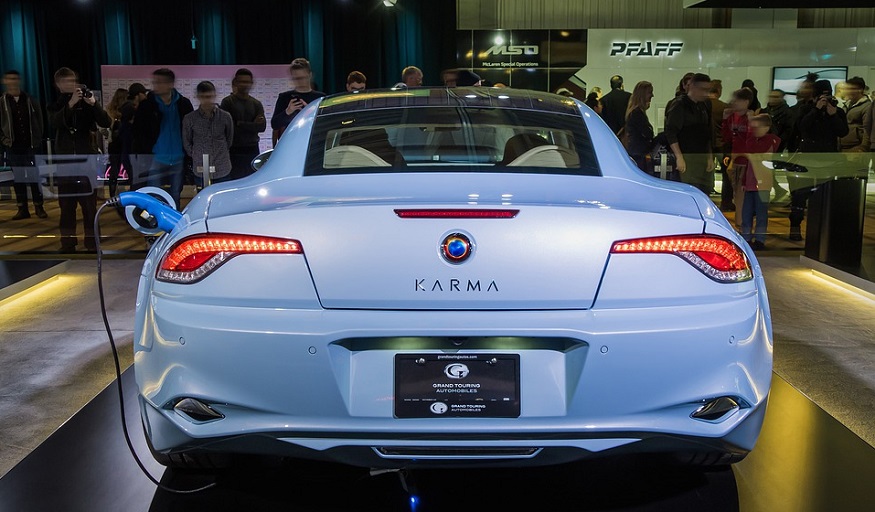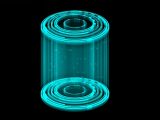
Karma Automotive seeks to make self-fuelling hydrogen-powered cars
February 5, 2021It aims to test vehicles it will build with a powertrain that will run on the H2 it produces itself.
Karma Automotive, a luxury electric vehicle company, is working on the early stages of a powertrain for hydrogen powered cars that would produce their own fuel.
The technology is not yet complete, but the company expects to start testing it this year.
Until now, the company’s primary focus has been the development of plug-in hybrid and electric cars. This has been its purpose since it rose from what was left of Fisker in 2014. The company still intends to release a new electric sedan it has called the GSe-6. That said, it is now looking beyond electric options and is in the early phases of building a powertrain for hydrogen cars that would produce their own H2 as a fuel.
To accomplish this goal, Karma Automotive is working with Blue World Technologies from Denmark. The entire system is built around a methanol fuel cell. It can be refilled as fast as a gasoline powered vehicle. From fueling, the chemical is sent through a methanol reformer, which converts it into hydrogen. The H2 is used for generating the electricity that moves the vehicle.
Both companies identified methanol as the H2 carrier for the hydrogen powered cars.
That said, neither company immediately identified what the byproducts of their hydrogen production process would be.
Other automakers involved in making H2 powered cars include Toyota, Hyundai and BMW. They have all poured millions into hydrogen fuel cell vehicle investments. That said, each of those companies has chosen not to work with methanol.
Karma Automotive stated that it decided to use methanol and produce the H2 within the vehicle because methanol – also known as wood alcohol – is already widely traded globally. Moreover, many countries can store and distribute that substance using their existing infrastructures. Furthermore, it can be produced using renewable sources.
The Irving, California-based automaker and Blue World Technologies intend to install the methanol- powered drivetrain into a fleet of their GSe-6 sedans to create hydrogen powered cars before the close of this year. They will test these vehicles in both the US and Denmark.
powered drivetrain into a fleet of their GSe-6 sedans to create hydrogen powered cars before the close of this year. They will test these vehicles in both the US and Denmark.



 With over 15 years of reporting hydrogen news, we are your premier source for the latest updates and insights in hydrogen and renewable energy.
With over 15 years of reporting hydrogen news, we are your premier source for the latest updates and insights in hydrogen and renewable energy.
I am amazed that not one of the petrol/ gasoline retailers has put forward a plan to build hydrogen refuelling stations into their larger petrol / diesel retail forcourts around the U.K. and world.
The U.K. as an island will be able to showcase this to the rest of the world.
It is an opportunity to steal the show and open up a hydrogen network to work in tandem with some of the house hold names in to automotive industry and other governments !
Roll on the day when it happens and fuel cell powered electric vehicles can really take off.
vind dit een prachtig alternatief, maar wat is de kostprijs en mogelijke bevoorradingen.
On the surface, this process for making hydrogen seems to be attractive. However, the methane reformer has CO2 and CO as a byproduct, both of which are pollutants. Therefore, this resembles the problem that exists today with electric cars being powered by natural gas or coal-fired power plant electricity. We need efficient resonant chamber electrolysis of water for creating hydrogen and oxygen, both of which are useful with NO byproducts that are harmful.
@HydrogenFuelNews–you are mixing your metaphors a bit, as they are not using a ” “; they are using a high-temperature PEM (HTPEM) fuel cell (similar to the PEM fuel cells powering current fuel cell electric vehicles). You are correct in the fast refueling of the liquid methanol/water mixture, as well as the use of a methanol reformer. And yes, the H2/CO/CO2 gas output by the reformer is the fuel for the HTPEM fuel cell. Finally, the HTPEM fuel cell was chosen as its high operating temperature minimizes much of the CO poisoning problem of conventional PEM fuel cells. (But note: HTPEM technology is not as well-developed as PEM fuel cell technology.)
@KeithDPatch
Methanol is not so enviro and people friendly as you may think. The CDC says – “Methanol is a toxic alcohol that is used industrially as a solvent, pesticide, and alternative fuel source.”